We use Specflow and currently, most of our assertions are done using Fluent Assertions, ie look something like:
myval.Should().NotBe(null)
All is working well, however there are some cases in which we want the same code to sometimes Assert Inconclusive, and sometimes not.
For example, let us assume we have a step which calls a method to install the AUT.
The test which asserts that the AUT can be installed correctly will use this method as part of a WHEN/THEN step.
In this instance, if installation fails, we want to proceed as normal and fail the test.
GIVEN The AUT is NOT installed
WHEN I install the AUT
However, for all other tests, the same method may be called as part of a GIVEN step or as part of a BeforeScenario / BeforeFeature hook, and in that instance, if the installation fails, the test should be failed as inconclusive, because it was not the test itself that failed, but the Setup stage.
GIVEN the AUT is installed
WHEN I perform function X of the AUT
So in this example, let us assume that the step definitions for WHEN I install the AUT in the first test, and GIVEN the AUT is installed in the second test simply call a helper method with something like AppFacade.Install()
Of course we can litter AppFacade.Install() and all our other helper methods with conditionals etc, but I was wondering if anyone out there has a more elegant solution - ie way to extend an assertion engine so that it automatically applies this logic - I see no barriers on the Specflow side to achieving this insofar as you can examine the Specflow context objects to detect what kind of step you are on.
Ideally we would like to stick with Fluent Assertions, but if this overly complicates things, we would be willing to reconsider.
